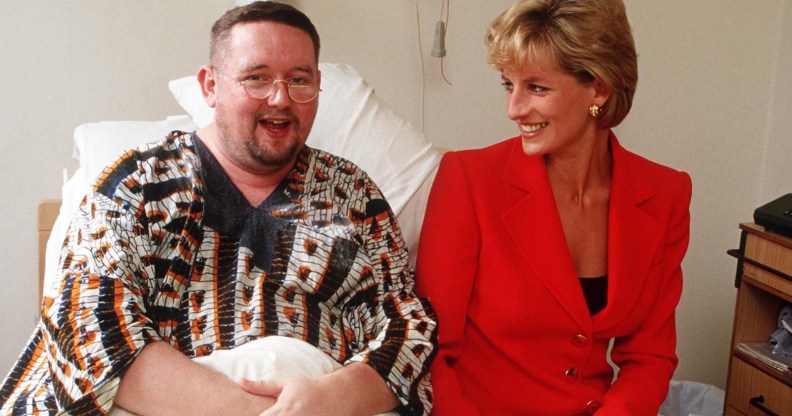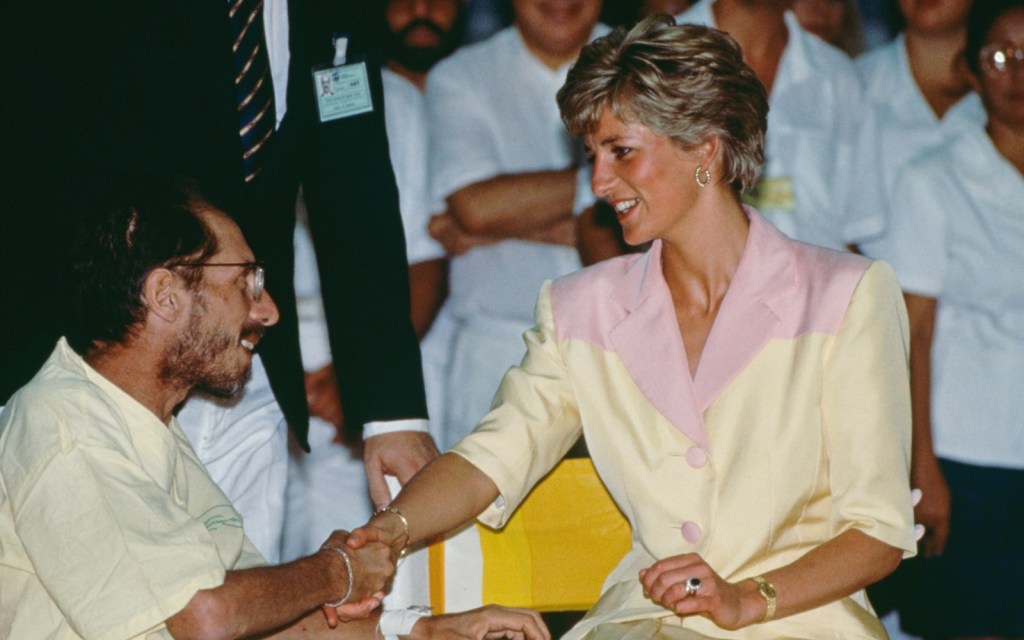Princess Diana stood ‘in the face of fear’ to help people with HIV, says Prince Harry

Princess Diana spent time in hospitals with people affected by HIV throughout the epidemic. (Credit: Getty Images)
Prince Harry has praised his mother, Princess Diana, for her tireless support for people with HIV during her life, to mark the 40th anniversary of the Terrence Higgins Trust.
The Duke of Sussex released a statement to coincide with the sexual-health charity’s milestone.
“Like many, my mother grew up in a world where HIV was likely a death sentence”, the prince wrote.
“Yet, in the midst of all that uncertainty, she led with empathy, finding the humanity in all around her and demonstrating the power of connection in the face of fear.
“While my mother did not live to see the success of today’s treatments, I feel immense pride in being able to continue her advocacy with you.”
The Terrence Higgins Trust was founded in 1982 – but only formalised in 1983 – by the partner and friends of Terry Higgins, who was one of the first people in the UK to succumb to the virus. Over the years, it has become the country’s leading HIV charity.

At the height of the HIV/Aids epidemic in the 1980s, Prince Harry’s mother, Princess Diana, was one of the few public figures to visibly treat people living with HIV with compassion and humanity.
In 1987, she opened the first HIV/Aids unit at London’s Middlesex Hospital and, in front of the world’s press, shook hands with an HIV patient without wearing gloves – challenging the beliefs of some that the virus could be spread by day-to-day contact.
On Monday (6 March), the charity staged a sale at the renowned London auction house, Christie’s, to raise funds for its work supporting people living with HIV, as well as testing and research.
Famous artists including Tracey Emin and Antony Gormley donated works to the auction. Other lots up for bids included luxury holidays, a photoshoot, and afternoon tea with David Walliams.
“As Terrence Higgins Trust has evolved over the years, their goal has remained the same: end new transmissions,” Prince Harry continued.
“Terrence Higgins Trust has pledged to make England the first country to end new HIV cases by 2030, but they need all of us to do our part by encouraging testing so we all know our status, eradicating stigma that thrives on silence, and donating the resources [they need] to keep up their efforts at pace.”
While there has been significant progress during the past 40 years, “we cannot slow down now, we must finish the job”, he added.
“My biggest and heartfelt congratulations on this historic milestone. May the next one we celebrate signal an end to the HIV/Aids epidemic for all.”
How did this story make you feel?

